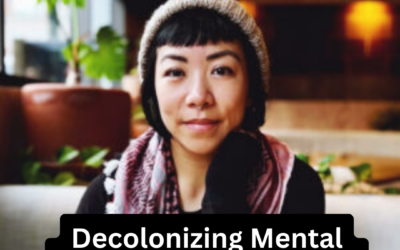Podcast: Play in new window | Download (Duration: 32:13 — 22.2MB)
Subscribe: Apple Podcasts | Spotify | Amazon Music
How does your involuntary stress response system affect you throughout life?
This episode takes a wide-angle look at attachment throughout one’s life, discusses how one’s environment affects their system’s involuntary response to stress, and how that stress response system impacts us from infancy to the autumn years. In this episode, co-hosts Ann Kelley Phd and Sue Marriott LCSW, CGP discuss attachment across the lifespan, specifically looking at the elder years and how our attachment system affects us as caretakers of our parents or as the senior who may be undergoing the various losses inherent in aging.
From toddlerhood, friendships, dating, mating, aging, and even through the dying process our stress response system governs how we manage these important transitions. As physical, mental and financial stress go up as we age, so does our need for security and people to nurture us. Attachment roles may reverse and understanding this deeply may provide openings for changes to close relationships.
Neuroscience continues to document our ability to change and grow throughout our life. This episode takes a wide-angle look at attachment throughout one’s life, discusses how one’s environment affects their system’s response to stress, and how that system impacts us from infancy to the autumn years. Learn how to adjust set stress “pathways” and move towards more secure relating in adult relationships, and also unravel the parallels that exist between attachment in infants and the elderly.
Episode 54 podcast notes:
0:00-10:00
Introduction & David Elliot conference April 7, 2018
Attachment overall: Our environment directly affects how our system responds to stress.
How babies are responded to when distressed directly impacts the attachment relationship they develop.
Involuntary stress response, HPA Axis
Set Points: Cortisol level upon waking (stress response) impacted by attachment status and primary relationships. Even with positive relationships with mothers, surprising study where race of the child affects cortisol and set these kids up for more risk. Epigenetics.
Insecure attachment is actually a very effective coping mechanism and strategy in children in stressful situations. It’s a strategy not a disorder!
Keep cortisol level low – keep those you’re attached to close, eye contact, holding, tone of voice, self-soothing, interpersonal regulation.
Alan Sroufe longitudinal study since 1976
10:00-20:00
“Pathways”: optimal and problematic routes
Those with lower cortisol levels are more likely to ask for help.
Early caregiving vs. friendship networks
It’s possible to move pathways from insecure to secure, particularly with strong relationships
Spiritual relationships: secure attachments to spiritual center or community can be a very healing, integrative place
Adult attachment: voluntary relationships and reciprocally dependent, symmetrical not asymetrical like parent-child
Couples therapy and getting people to try to turn to one another, idea of the “soft toss”
Recognizing when partner is in a stress response as being “lost in familiar places”
20:00-32:00
The aging process: as we mature, we become more secure as we become less anxious regarding how the world views us. Security set point can change.
Learn to turn to people in life events
Process of attachment affects us all the way from infancy to skidding into the grave, important to keep compassion.
Failure to thrive in infancy, “failure to thrive” in elders
All people aging do better with emotional support than with instrumental support
Therapy pets and response to stress, attachment doesn’t need to be human-to-human
Wrap up
Want more like this?
Check out our free YouTube video Modern Adult Attachment 101 to learn more – https://www.youtube.com/watch?v=PF7g4K8fDvo
Resources:
Van Assche, L. et al “Attachment in Old Age: Theoretical Assumptions, Empirical Findings and Implications for Clinical Practice” Clinical Psychological Rev. 2013 Feb; 33(1): 67-81
Schore A “Back to basics. Attachment, affect regulation and the developing right brain. Linking developmental neuroscience to pediatrics” Pedal Rev. 2005; 26: 204-217.
Rees, C. “Childhood attachment,” The British Journal of General Practice, 2007, Nov. 1; 57(544): 920-922
Find more resources at our website Therapist Uncensored/Resources
If you’ve enjoyed this episode, please send to a friend and rate and review on your podcast player. Thank you so much for listening! Ann and Sue














